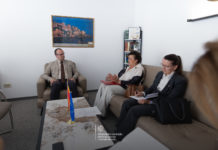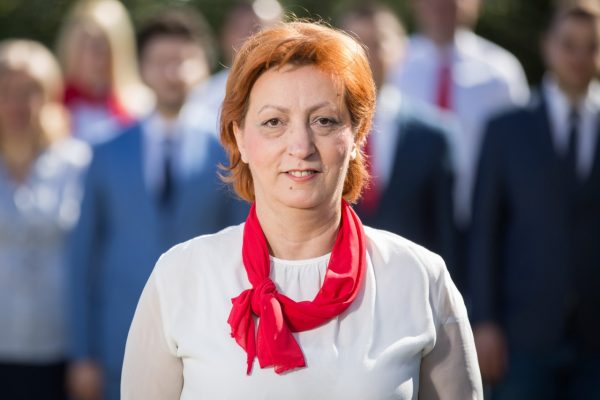Podgorica, (MINA-BUSINESS) – Vice-President of the Democratic Montenegro Zdenka Popovic believes that any scenario not involving the euro as an official currency in Montenegro could only result in additional costs and problems both in the country and in the European Union.
“Introduction of a different currency would be problematic for the EU, while printing a national currency would cause great costs and involve high risk of inflation and currency exchange,” Popovic told Mina-business agency.
Talking about the negotiations between Montenegro and the EU under Chapter 17 – Economic and monetary union, she said that these were the reasons why she expected to see the convergence criteria modified in Montenegro’s case.
Popovic reminded that Montenegro had unilaterally introduced the euro in 2002, exchanging the Deutsch marks for the euros without the approval of the European Central Bank (ECB).
“In order to be allowed to use the euro as its own currency, a country needs to be the EU member state and to observe Maastricht criteria,” Popovic said, adding that she expected from the EU to accept Montenegro’s specific situation, the same way its members had provided a tacit agreement for the use of euro in the first place.
According to her, the main condition to be met in order to close Chapter 17 is the observance of the Maastricht principles related to the stability of prices, sustainability of public finance, stability of interest rates for government bonds, and the budget deficit and public debt bellow 3 percent and 60 percent of GDP respectively.
What is also expected is a stable national currency over a period of at least two years before joining the European Monetary Union.
“As we know, Montenegro does not have its own currency, which makes this last criterion impossible to meet,” said Popovic.
She said that it would be a great challenge for Montenegro, in the context of negotiations under Chapter 17, to decrease its public debt, which had reached 70.1 percent of GDP in early October and continued to show growth tendencies, and reduce its budget deficit to 3 percent of GDP.
“With Montenegro’s accession to the European Monetary Union, the Central Bank will lose its independence guaranteed by Article 143 of the Constitution, which prescribes that the CBCG is an independent organization responsible for the monetary policy and financial stability, and for the functioning of the banking system,” said Popovic.
She argues that the constitutional amendment which would be necessary in that case, is very complex and problematic, and would take a lot of time.
Popovic believes that there are many benefits of harmonization with the European economic policy for the citizens of Montenegro.
“The application of European standards would boost the competitiveness of the market, products, and foreign direct investments,” Popovic said, adding that fresh capital would create more jobs, and consequently improve the quality of life in the country.
The large market and free movement of labour and capital would contribute to the economic security of citizens and improve the living standard.
Talking about the way to meet the Maastricht criteria given the level of public debt and budget deficit in Montenegro, Popovic said that only a different economic model, involving development of the real sector, could strengthen the national economy.
“This requires a good business climate, strong institutions inspiring confidence in the rule of law, tax discipline and an unselective tax collection, comprehensive combating of organized crime and corruption, and credible investors with fresh capital and new technologies,” said Popovic.
She believes that this would strengthen the economy, create jobs and increase the number of working people, which would in turn increase the budget revenues and, in combination with austerity measures, reduce the need to borrow more money.
“There can be no growth and development without a healthy entrepreneurship and fair use of all natural capacities and knowledge as the most valuable resource any country has. In the current conditions, it would be very difficult to bring the public debt and budget deficit in line with the Maastricht criteria any time soon,” said Popovic.
She said that she was not optimistic, despite the fact that the Government’s Fiscal Consolidation Strategy envisaged a lower public debt, and a budget surplus by 2020.
“On the contrary, I believe that the public debt would only increase because of the unreasonable and wasteful economic policy of the Government,” said Popovic.
She believes that Chapter 17, which was officially opened on 25 June in Luxembourg, will be among the last ones to be closed.
“It takes a lot of time to introduce of European standards into all pores of Economic and social life. It also takes time to improve an overall economic climate, allowing us to be good partners to EU member states in the implementation of the common economic policy,” said Popovic.
This article was published with the financial support of the European Union available within the framework of the project “Dealing with Ethics and Fake News” IPA2018/397-252. The Mina agency assumes full responsibility for its contents, which do not necessarily reflect the position of the EU.
Longer version of article is available on a link MINA ENGLISH SERVIS
























